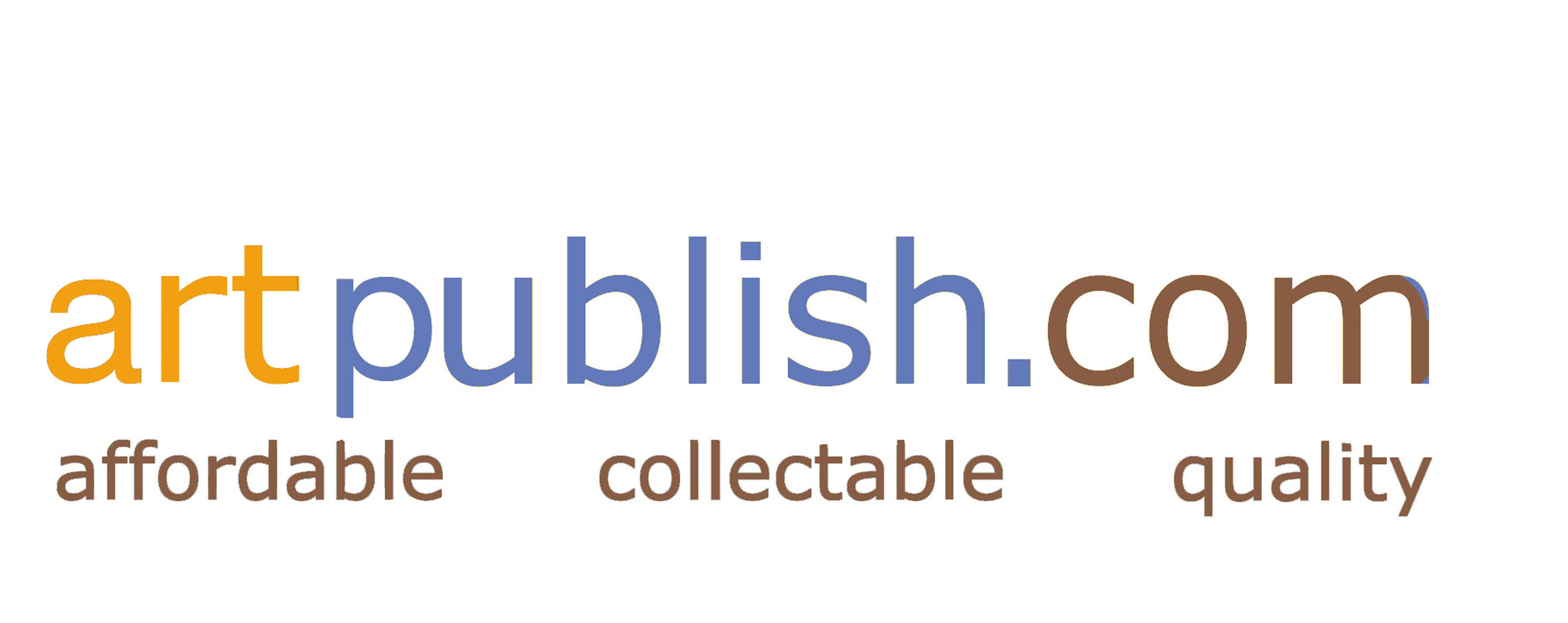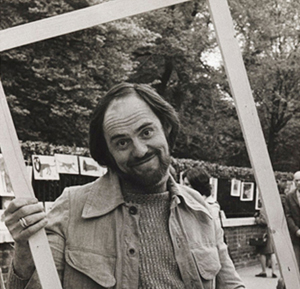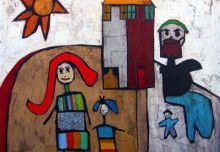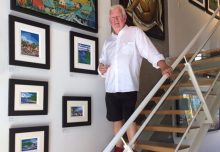INTERVIEW WITH COLIN RUFFELL ARTIST
“I have been a full-time professional artist for over 50 years. I know … I am amazed as well. But it is true. I left my last proper job teaching art in a secondary school way back in 1965.
This is how it happened. I couldn’t live on the teacher’s salary. Fran, my wife, and I had two small children and a rented council house. So I used to get out at weekends and knock on people’s doors to try and sell the paintings that I had made during weekday evenings. The teaching salary was so poor that I made more on some Sundays than a week in school. So when the headmaster invited me to apply for a job in the new school that would replace the current one, I didn’t apply.
Consequently I lost the tied tenancy to the council house. But luckily, for a very small deposit we got our first foot onto the property ladder and all was well.
I painted using a palette knife onto hardboard panels, and sold them for a few pounds each. A year later the story was picked up by the Daily Mail, Here is the photo and article.
I was joined by two other artists and we grew more proficient as we learned about selling. Later in 1966 we were invited to exhibit in ‘Britains Best’ at Rackhams, a big Harrods owned department store in Birmingham. We gave painting demonstrations and then sold our paintings to the furniture department for their room displays. That led onto a new business where we teamed up with G-Plan furniture people and toured the country selling to department stores and furniture stores.
We took a regular stand at the Spring Fair in Birmingham, which is a huge trade only show every February. But as that business grew we missed the direct feedback and profit margin that you get when you sell to the end consumer. So a couple of years later I also started to exhibit every Sunday on the Bayswater Road art exhibition which ran along the railings on the north side of Hyde Park in London.
That spell exhibiting at the Spring Fair in February, and Bayswater every Sunday, lasted several years. I later handed my existing profitable furniture-store business over to an established art-dealer in exchange for a fifty percent share and a guaranteed minimum. It was a really good deal, plus the prospect of international fame and fortune. It also gave me time to develop in other areas.
I yearned for change and more recognition from the mainstream art gallery world. They were very influential back in the seventies. So I started to woo small, established, art gallery proprietors with my work. The trouble was that the art gallery business requires that the artist and collector are kept apart. That is because collectors like talking to artists and artists like talking to collectors. But the in-between middle-man has to keep them apart to avoid losing control and percentage of sale price.
But then the international art-dealer lost a fortune in a property deal and went bust. I lost the guaranteed income, and a load of stock. So I went back to Bayswater Road for another spell. This time I changed my painting style, subject matter, and technique. It worked well and we gradually recovered from the financial catastrophe caused by the dealer’s bankruptcy.
In the eighties and early nineties I was painting and selling through a variety of outlets. I had collected hundreds of regular private customers who continued to buy when I visited them in their homes. I made friends with some great gallery owners, and had a series of annual worldwide exhibitions including Japan, Australia, USA, Canada, Venezuela, Germany, Sweden, Scotland, and England of course.
Then in the mid-eighties we came across the concept of Artists Open Houses. This was in its infancy and the very first one started just around the corner from our house in Brighton. We joined the small group and became the 7th house to open. The list grew and grew every year until nowadays there are hundreds of thriving artist’s open house exhibitions all across the country.
I also joined the Fine Art Trade Guild as an artist Member. I did this to explore the emerging new method of inkjet printmaking. I was invited to form, and chair, a Committee that would evaluate the implications of the new technology.
In the mid-nineties I created our family’s first online art gallery. This has continued to be a very exciting outlet. Our website www.artpublish.com is where collectors can see my collection of several hundred print images that I make and print myself. Many other online art galleries have emerged and we artists can supply collectors from a massive worldwide audience.
In 2012 I joined the Skylark Gallery artist’s collective. We have two art galleries on the Southbank in London approximately half way between the Tate Modern and the London Eye. I like being a Skylark artist because of the location, and we get a chance to meet art lovers from all over the world. As a collective the business model is equal for all of our members.
Whatever next I ask myself.”












